- What autonomous technology exists today?
- Which are the best autonomous cars in the UK?
- Are autonomous cars the future?
Did you know that 55% of small businesses believe they’re going to have a fully autonomous fleet in the next 20 years? With a whopping £40 billion already sitting in the self-driving car market, it’s no wonder businesses are starting to shift their focus onto autonomous cars.
Fully autonomous cars are not yet legal in the UK today (11/05/2022). However, it is very likely, having seen autonomous technology develop in vehicles already, that we will see cars with full automation on UK roads in the near future.

Which cars have autonomous driving? What autonomous technology already exists today? In this article, we delve into the type of autonomous technology that could already exist in your car and many others, and the best autonomous cars you can buy now.
What autonomous technology exists today?
- Adaptive cruise control – this adjusts the car’s speed to match the surrounding traffic
- Auto-steer – this helps the driver by taking control of the steering and manoeuvring of the car, although the driver must keep hands on the wheel at all times
- Auto-park – this technology parks the car itself, with some models working fully autonomously by just a push of a button
- Autonomous emergency braking – this system scans for any potential collision and activates the brakes if the driver does not stop the car when necessary
- Blind-spot monitoring – this system checks how much space there is in the rear areas of your vehicle and will notify you if an approaching vehicle is too close to your car
- Lane-keep assist – keeps the car in the centre of the lane and will warn the driver when drifting via a visual warning or a sound. Some models will automatically brake if the driver doesn’t take action when asked to.
- Sign recognition – this lets the driver know of any traffic signs on the road ahead
Which are the best autonomous cars in the UK?
Tesla
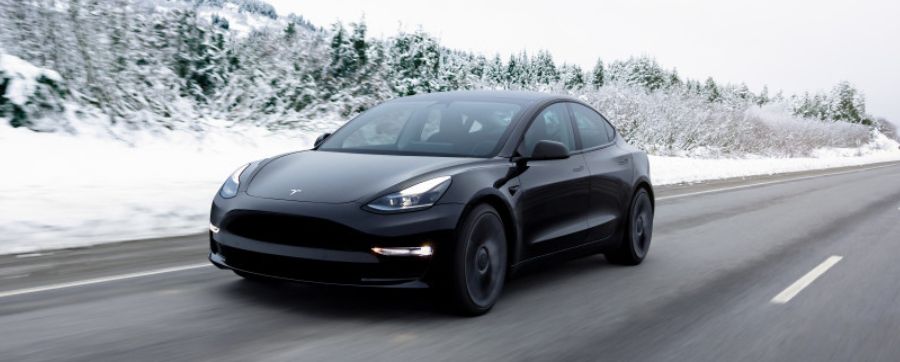
Probably the electric brand most known for its autonomous technology is Tesla. All of its models in the UK offer the Autopilot system as standard; this includes:
- Adaptive cruise control
- Emergency braking
- Blind-spot monitoring
- Lane-keeping assist
Tesla offers an Enhanced Autopilot which changes lanes for you. That’s right! Once you have indicated which lane you wish to move onto, the system will scan the road and switch lanes when it is safe to do so. The vehicle also has the ability to park itself.
The most advanced option is the Full Self-Driving Capability. This allows the Tesla Model 3 to stop at traffic lights without any control from the driver.

Volvo XC40
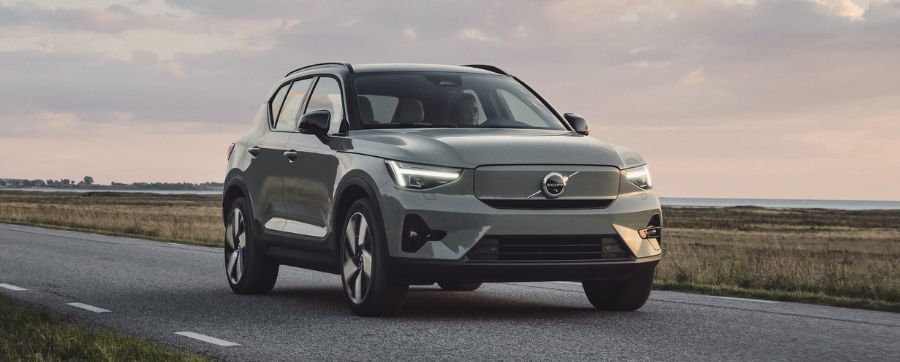
Volvo offers an excellent family SUV that features Pilot Assist. This kit focuses more on helping the driver rather than taking over and having full control. It provides steering assistance; this is somewhat similar to auto-steer but it does not take full control of the wheel.
The technology also helps keep the car in the correct lane and maintains a safe distance between the XC40 and its surrounding vehicles.
Like most semi-autonomous cars, the driver’s hands must remain on the wheel, otherwise, an alarm will go off reminding the driver to stay active.
Volvo V60
Similar to the XC40, the V60 features a bundle of autonomous technology including:
- Lane-keeping assistance
- Steering assistance
- Park Assist Pilot (optional as an extra) – this includes a self-parking system which guides drivers into a parking spot only 20% bigger than the car
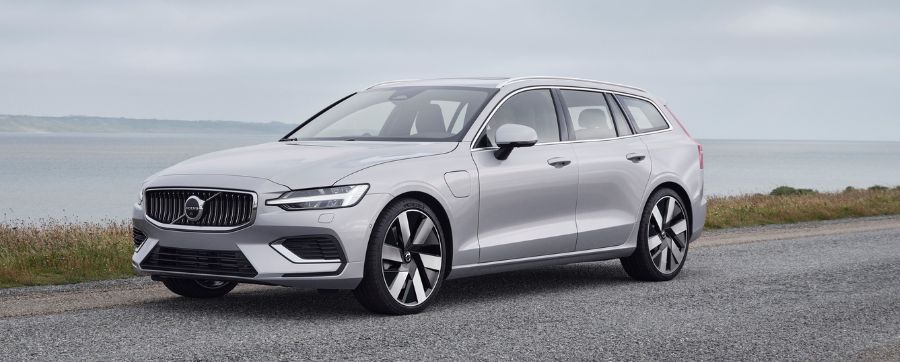
BMW
The German manufacturer offers a range of vehicles featuring autonomous technology, named by BMW as “Intelligent Driving”.
Many of these features include:
- Adaptive cruise control (ACC)
- Lane-control assist
- Steering assist
- Stop & Go – an extension of the ACC, this gives the driver a visual and acoustic signal if a car ahead of the road has made a sharp break. If no action is taken to stop the car, the system will automatically press on the brakes.
BMW iX
With the goal of reaching ‘level 3 functionality in the medium term’, it’s hard to dismiss this electric SUV as anything other than impressive.
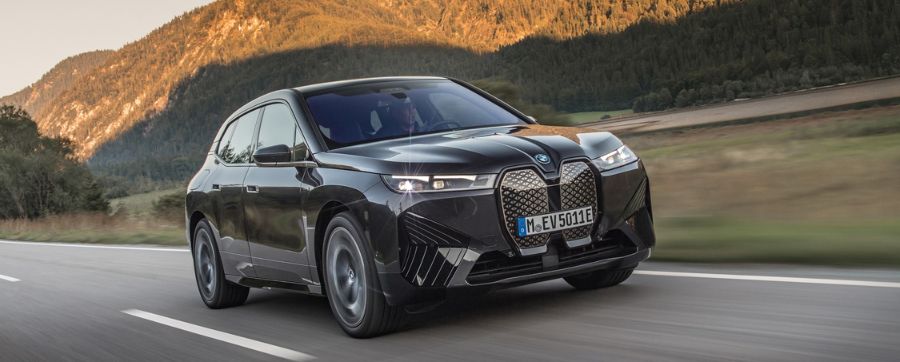
Here are some of the best autonomous features of the iX:
- Front collision warning – this uses a radar to scan the road for any cyclists and pedestrians and will alert the driver with a visual warning for any potential collisions
- Steering assist – this is more similar to lane-keeping assist and works to keep drivers in their lane on the motorway
- Adaptive recuperation – uses five cameras, five radar sensors and 12 ultrasonic sensors and works together to avoid a hazard. How does it work? When approaching a potential hazard, the regenerative braking is ramped up so that the car slows as soon as the driver lifts off the accelerator.
Nissan Leaf & Qashqai
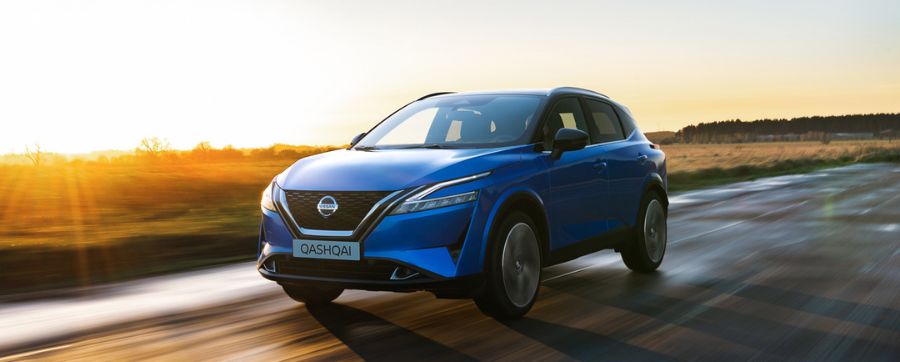
Nissan’s autonomous technology ProPilot includes:
- Adaptive cruise control
- Lane-keeping assist
- Autonomous emergency braking
- Autonomous parking – The car parks itself once the driver has selected the Autonomous parking system
ProPilot is available as an option in both the models Nissan Leaf and Nissan Qashqai.
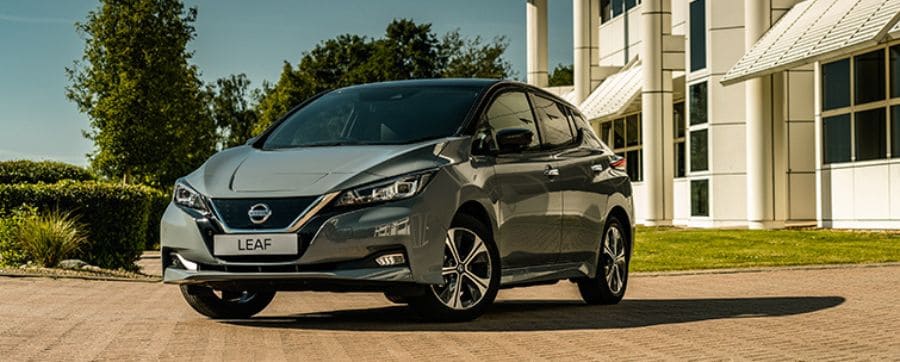
Another impressive fact about Nissan, the Leaf model travelled 230 miles across the UK – the single longest journey ever completed by an autonomous car in the UK. This included a whole range of road types such as motorways, roundabouts, B-roads and overtaking manoeuvres.
Audi A8
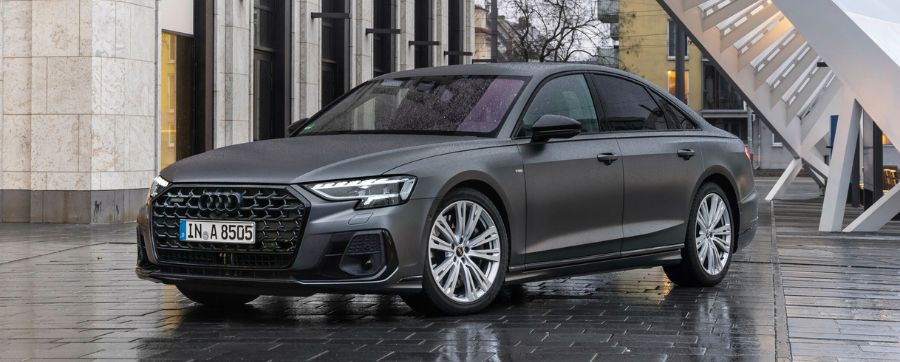
The Audi A8 was the first production car to successfully reach level 3 of autonomous driving. In certain conditions, this means that the autonomous car is able to cover almost every aspect of driving.
This allows the driver to remove their hands from the steering wheel for longer than usual during stop-start traffic – perfect for when you’re barely moving in morning traffic. Once you reach over 37mph you must take back control of the vehicle.
Are autonomous cars the future?
Will autonomous cars become the future of driving? Should we help develop this technology and improve road safety?
Self-driving cars could well be the answer to a medley of problems such as catering to the elderly, disabled and children. Self-driving cars are essentially programmed computers, so there is the possibility that they can be programmed to drive more efficiently than a human. This, in turn, could reduce traffic congestion in cities and motorways, which would decrease the number of road accidents.
Another benefit to autonomous cars being coded like a computer is that not only will they work a lot more efficiently, but they also don’t have the downfall of experiencing human error or emotion.
With the ever-growing autonomous technology seeping into our everyday lives, it’s likely we will soon look back and wonder how we ever drove cars that were not self-driving! So, is there a car most suitable for you? Which is your perfect vehicle with autonomous technology?

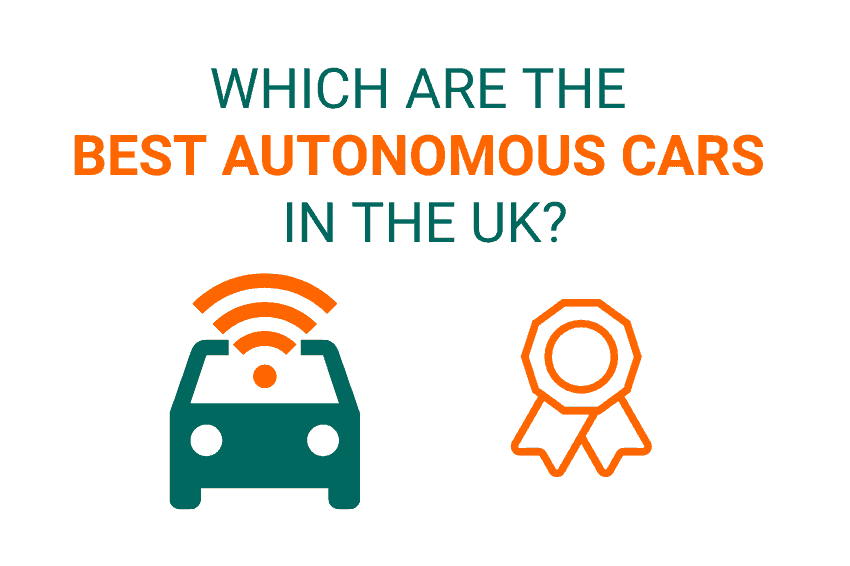

Autonomous vehicles should be restricted to their own tracks – like the Docklands Light Railway.
They have no business mixing with “normal” vehicles.
Surely only authoritarians would want to remove individual control and responsibility from personal transport ?